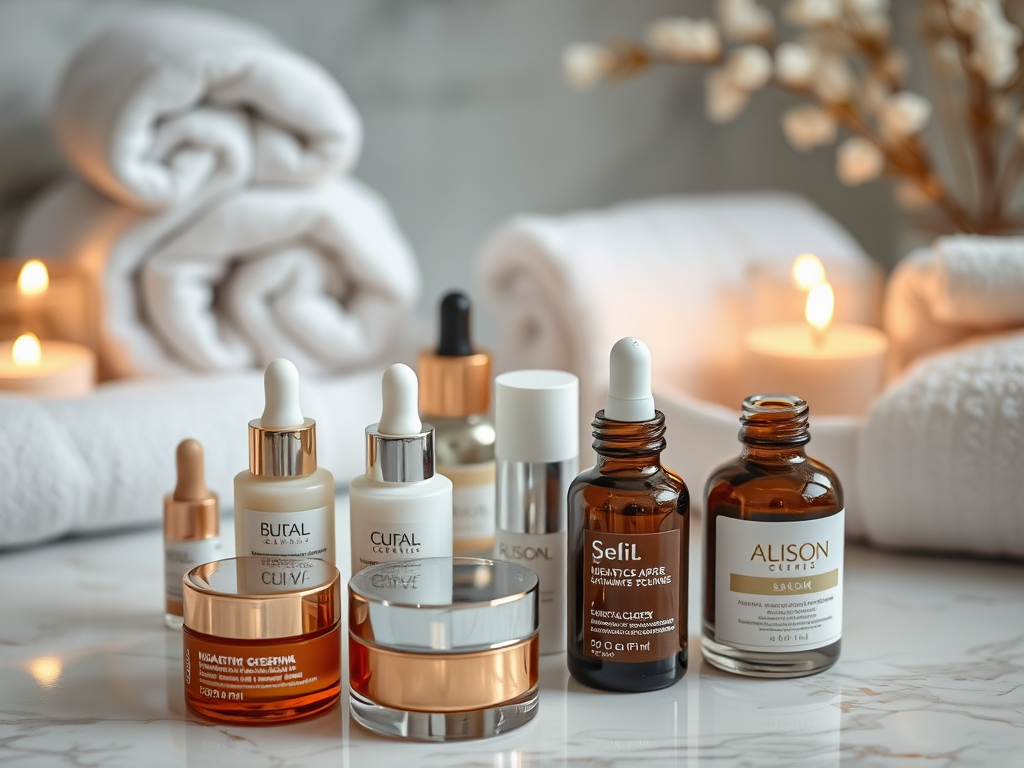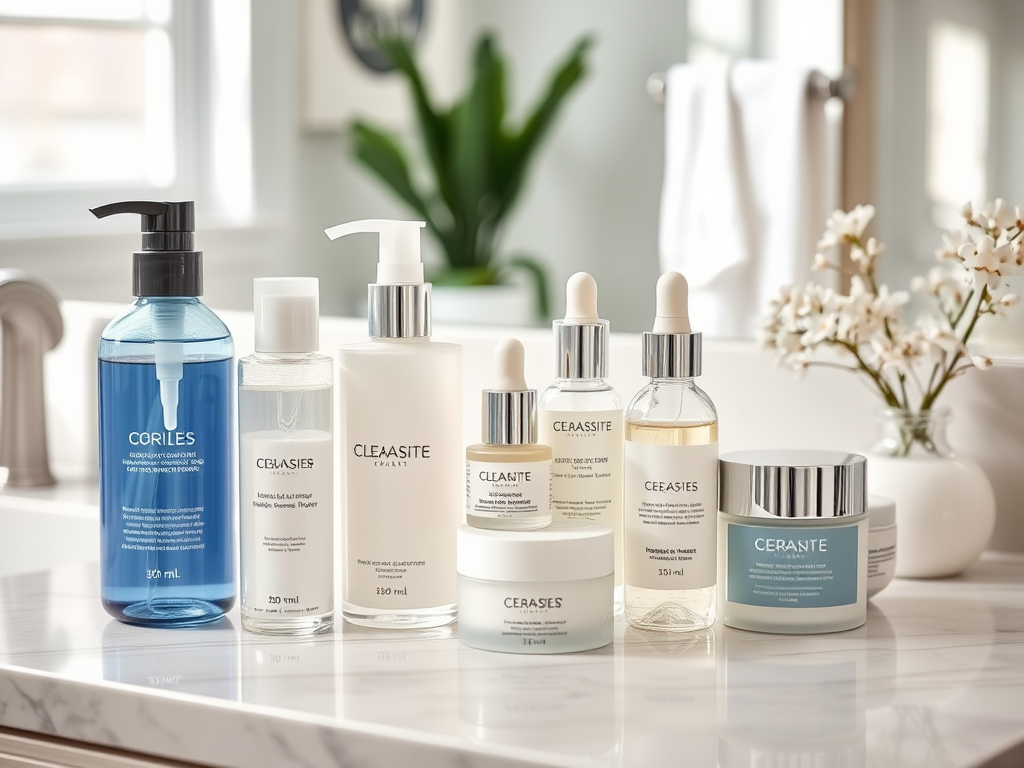For those with oily skin, nighttime skincare can sometimes feel like a high-stakes balancing act. You want to nourish your skin while avoiding any products that could exacerbate oiliness or lead to acne. A thoughtful skincare routine at night can truly make a difference, acting as a soothing balm for your skin after a long day. It preserves the skin’s moisture balance and works overnight to target excess oil and breakouts. With the right products and tips tailored specifically for oily skin, you can wake up to a fresh, balanced complexion every day. This article will delve into the essential steps for a nighttime skincare routine that not only addresses your unique needs but also helps you maintain glowing skin with flair.
Understanding Oily Skin

Oily skin is a common trait, often resulting from an overproduction of sebum, which leads to a shiny appearance and potential breakouts. Factors such as genetics and environmental conditions can significantly impact oil production levels. Hormonal changes throughout life stages, such as puberty or menstrual cycles, also play a role. Understanding the anatomy of your skin is crucial in crafting a personalized skincare strategy. By recognizing the underlying factors at play, you can select products that complement your skin’s natural behavior rather than fight against it. Ultimately, education is the starting point for achieving a healthy skincare balance.
Causes of Oily Skin
- Genetics: An inherited tendency towards oiliness can often dictate skin type.
- Hormonal Changes: Fluctuations in hormones can trigger increased oil production.
- Diet: High-glycemic foods and dairy products can exacerbate oiliness.
- Climate: Humidity and hot weather contribute to excess sebum.
Benefits of a Nighttime Skincare Routine
Following a dedicated nighttime skincare regimen offers numerous benefits specifically for oily skin. Firstly, it provides your skin with the chance to not only recover but also rejuvenate during the rest period. Products applied at night can penetrate the skin more effectively since it isn’t exposed to environmental stressors like UV rays and pollution. Secondly, a consistent routine fosters good habits that lead to long-term improvement in skin texture and health. Additionally, nighttime skincare can create a moment of calm and self-care, enhancing your well-being. Therefore, incorporating this practice can nurture your skin and mental health alike.
Key Steps in a Nighttime Skincare Routine for Oily Skin

Constructing a nighttime skincare routine for oily skin requires a thoughtful approach. Each step is important and should be carefully considered to yield the best results. Here’s a structured guide to navigate through your regimen:
Cleansing
Your skincare journey begins with cleansing, the crucial first step in any routine. Use a gentle, oil-free cleanser that effectively removes makeup and impurities while maintaining hydration. Avoid harsh cleansers that could strip your skin of natural oils, leading to increased oil production as your skin tries to compensate. Look for products with ingredients like salicylic acid, known for their oil-control properties. A thorough cleanse not only provides a clean slate for subsequent products but also helps prevent acne. After cleansing, your skin should feel refreshed without any tightness.
Toning
Next, consider toning as a vital step that prepares your skin for treatments to follow. A good toner works to remove any residual dirt from your skin while helping to absorb serums and moisturizers more effectively. Look for alcohol-free options with soothing properties to prevent irritation. Ingredients like witch hazel and green tea can be particularly beneficial for oily skin, as they have natural astringent properties. An effective toner not only minimizes the appearance of pores but can also help to balance your skin’s pH levels. With this step, you are laying the groundwork for better absorption of the following products.
Treatment
Introducing treatments that target oiliness and acne concerns can dramatically affect your skin’s health. Select products that contain active ingredients like niacinamide, which is renowned for regulating sebum production. Retinol is another mighty ingredient that not only helps reduce oiliness but also promotes cell turnover, aiding in the prevention of clogged pores. The key is to apply these targeted treatments after toning to ensure they penetrate effectively. An informed choice allows you to tackle specific concerns while refining your overall skin texture. Be patient as the power of these treatments unfolds over time.
| Step | Product Type | Key Ingredients |
|---|---|---|
| Cleansing | Oil-Free Cleanser | Salicylic Acid |
| Toning | Alcohol-Free Toner | Witch Hazel |
| Treatment | Targeted Serum | Niacinamide |
| Moisturizing | Lightweight Moisturizer | Hyaluronic Acid |
Moisturizing
Even if your skin feels oily, dehydration is still a concern that shouldn’t be ignored. Hydration is vital for maintaining skin health and can help balance out excess oil production. Opt for lightweight, oil-free moisturizers that lock in moisture without clogging pores. Look for ingredients like hyaluronic acid, which is excellent for hydration without adding heaviness. Proper moisturizing creates a barrier that keeps moisture in while preventing excess sebum from surfacing. Remember, neglecting this step may worsen your skin’s oiliness over time.
Spot Treatment
For those pesky breakouts that sometimes occur, spot treatments are your best ally. Components like benzoyl peroxide and salicylic acid can target blemishes directly. Applying these treatments as needed can stop a breakout in its tracks without overloading the skin with active ingredients. It’s essential to use these products sparingly and only on affected areas to avoid unnecessary irritation. Incorporating a reliable spot treatment into your routine helps to quickly reduce inflammation. Make it a priority in your regimen for optimal results.
Additional Tips for Managing Oily Skin
Beyond the established routine, you can employ additional strategies that manage oiliness effectively. Such strategies allow for a multi-faceted approach to skincare tailored to individual needs. Here are some essential tips:
- Regularly Exfoliate: Aim for 1-2 times a week to remove dead cells and prevent clogged pores.
- Dietary Considerations: Reduce high-glycemic foods and add more fruits and vegetables to your nutrition.
- Stay Hydrated: Drinking plenty of water helps maintain skin’s moisture and overall health.
Conclusion
Implementing an effective nighttime skincare routine for oily skin can greatly improve your skin’s overall appearance and health. With the right strategy, you can combat excess oil and minimize breakouts. It’s essential to understand your skin’s specific needs while choosing suitable products that encourage balance and hydration. By incorporating the discussed tips and tricks, you can spend your nights caring for your skin, setting yourself up for a radiant wake-up call. Consistency, patience, and education lay the groundwork for your skincare journey, leading to healthier, more resilient skin over time.
Frequently Asked Questions
- What type of cleanser should I use for oily skin? A gentle, oil-free cleanser that effectively removes impurities without drying the skin is best.
- Can I skip moisturizer if I have oily skin? No, moisturizing is essential; opt for lightweight, oil-free options that hydrate without adding extra oil.
- How often should I exfoliate oily skin? Exfoliate 1-2 times a week to help prevent clogged pores and manage oil production.
- Are there specific ingredients I should look for in products? Yes, ingredients like salicylic acid, niacinamide, and retinol are beneficial for oily skin.
- Is it okay to use essential oils on oily skin? Some essential oils may be too heavy for oily skin, but tea tree oil and lavender can be beneficial in moderation. Always conduct a patch test first.
